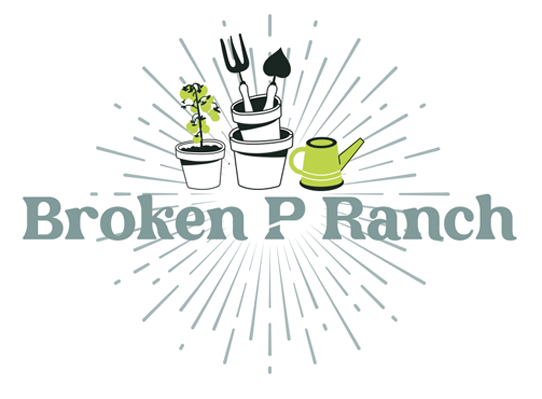The Best Eco-Friendly Kitchen Tools (That Actually Work)

Let’s be honest: your kitchen is probably cranking out a lot more waste than you think. To tackle this, consider incorporating eco-friendly kitchen tools. Between the cling wrap, plastic utensils, cheap gadgets that break after three uses, and paper towels flying like confetti, it’s a mess—and not the good kind that ends with licking brownie batter off a spoon.
But don’t worry. You don’t need to burn everything down and start from scratch. Swapping in a few well-made, eco-friendly tools can seriously reduce your kitchen’s environmental footprint. And here’s the kicker—they usually work better than their plastic counterparts.
So, let’s go over the MVPs of a sustainable kitchen.
1. Wooden Cutting Boards (Not Bamboo)
You want a good end-grain hardwood cutting board. Maple, walnut, cherry—something durable, non-toxic, and gentle on your knives. Unlike bamboo boards (which are often glued with formaldehyde), hardwood boards are naturally antibacterial, easier to maintain, and built to last for generations with a little mineral oil TLC.
2. Stainless Steel Everything
Bowls. Measuring cups. Mixing spoons. Tongs. Skip the plastic. Stainless steel lasts basically forever, doesn’t leach anything into your food, and can be fully recycled. I’ve got the same steel mixing bowls I bought ten years ago and they’ve been through everything—bread dough, marinated meat, pickling brine. They don’t stain. They don’t stink. They’re just solid.
3. Beeswax Wraps
Plastic wrap? Say goodbye. Beeswax wraps are reusable, breathable, and naturally antimicrobial. Wrap them around cheese, half-cut veggies, or cover bowls in the fridge. Rinse them with cold water, air dry, and repeat. They mold with the warmth of your hands and smell faintly of honey. It’s a win.
4. Glass Storage Containers
Nothing revolutionary here, but hear me out. Ditching plastic Tupperware for glass is a game-changer. It won’t warp in the dishwasher, stain with tomato sauce, or make your leftovers taste like a science experiment. Look for ones with snap-on lids, and you’re set for fridge, freezer, microwave, or even oven.
5. Cast Iron Cookware
Cast iron is the original nonstick pan—if you treat it right. It’ll outlive you and probably everyone you know. And unlike traditional nonstick pans, there’s no weird chemical coating to chip off into your scrambled eggs. Just season it, use it, rinse it, repeat.
Bonus: it adds trace iron to your food. That’s what I call a multitasker.
6. Reusable Coffee Filters or French Press
Daily drip coffee with single-use paper filters? Yeah, no. Try a French press or a pour-over with a metal mesh filter. It tastes better (richer, fuller-bodied), and you’ll never run out of filters again. Compost the grounds and you’ve got the full zero-waste morning routine.
7. Dish Scrubbers Made From Plants
Those plastic dish sponges that get gross after a week and then live in landfills for 500 years? Replace them with natural-fiber brushes or compostable sponges made from coconut coir or cellulose. Bonus if the brush has a wooden handle and replaceable heads. Less waste, more scrubbing power.
8. Compost Bin (That Doesn’t Smell)
This might not be a “tool” in the classic sense, but if you cook a lot, you need a compost system. A small bin on the counter with a charcoal filter lid will do the trick. No stink, no flies, just a perfect holding tank for your veggie scraps until you can toss them into the big compost pile (or city collection).
9. Silicone Baking Mats
Parchment paper has its place, but it adds up fast. A silicone baking mat gives you a reusable nonstick surface for cookies, roasted veggies, and sourdough. They’re easy to clean, don’t slide around, and can be reused hundreds of times.
10. Cloth Towels Over Paper Towels
Look, I get it. Paper towels are convenient. But if you want to really reduce waste, nothing beats good old-fashioned cloth. Keep a stack of flour sack towels, rags, or even cut-up old T-shirts by the sink and use them instead. Wash, reuse, repeat. Done.
11. Hand-Crank Food Mill or Grater
Instead of plugging in a plastic-heavy food processor every time you need to shred cheese or grind tomatoes, go manual. A stainless hand-crank grater or food mill is simple, effective, and way easier to clean. And no electricity required.
12. Glass or Stainless Water Bottles
Still using plastic water bottles? Don’t. Invest in a solid glass or stainless steel bottle, and keep it nearby while cooking to stay hydrated and skip the single-use nonsense.
13. Mason Jars (For Literally Everything)
Mason jars are the Swiss Army knife of the kitchen. Use them for storing dry goods, fermenting veggies, freezing stock, or packing leftovers. They don’t stain, they’re airtight with a good lid, and they look great on a shelf.
14. Manual Citrus Juicer
Plastic juicers? Meh. A good-quality manual citrus press (preferably stainless steel or enamel-coated) will get every drop out of your limes and lemons, and it won’t break or bend after a few uses. You’ll actually enjoy juicing again.
15. Grain Sack Aprons and Linen Potholders
Why not feel good and look good while you cook? Linen or cotton aprons and potholders are durable, wash beautifully, and don’t melt like synthetic ones. Plus, they’ve got that cozy, old-world charm that makes you feel like you’re cooking in a cottage in Provence—even if it’s just mac and cheese.
The Bottom Line
Eco-friendly kitchen tools aren’t about being trendy or perfect. They’re about slowing down, choosing things that last, and making your daily kitchen grind a little more intentional.
Because when you love your tools, you take better care of them. And when you take care of them, they take care of you—and the planet.
So swap one thing this week. Just one. That’s how habits are built. And before you know it, your kitchen will feel like a place that actually aligns with your values, not just your recipes.
If you’re serious about cooking, you should be serious about your tools. And trust me, your great-grandkids will thank you for that cast iron skillet and those raggedy old flour sack towels.
Let’s build a better kitchen, one swap at a time.

Leave a Reply